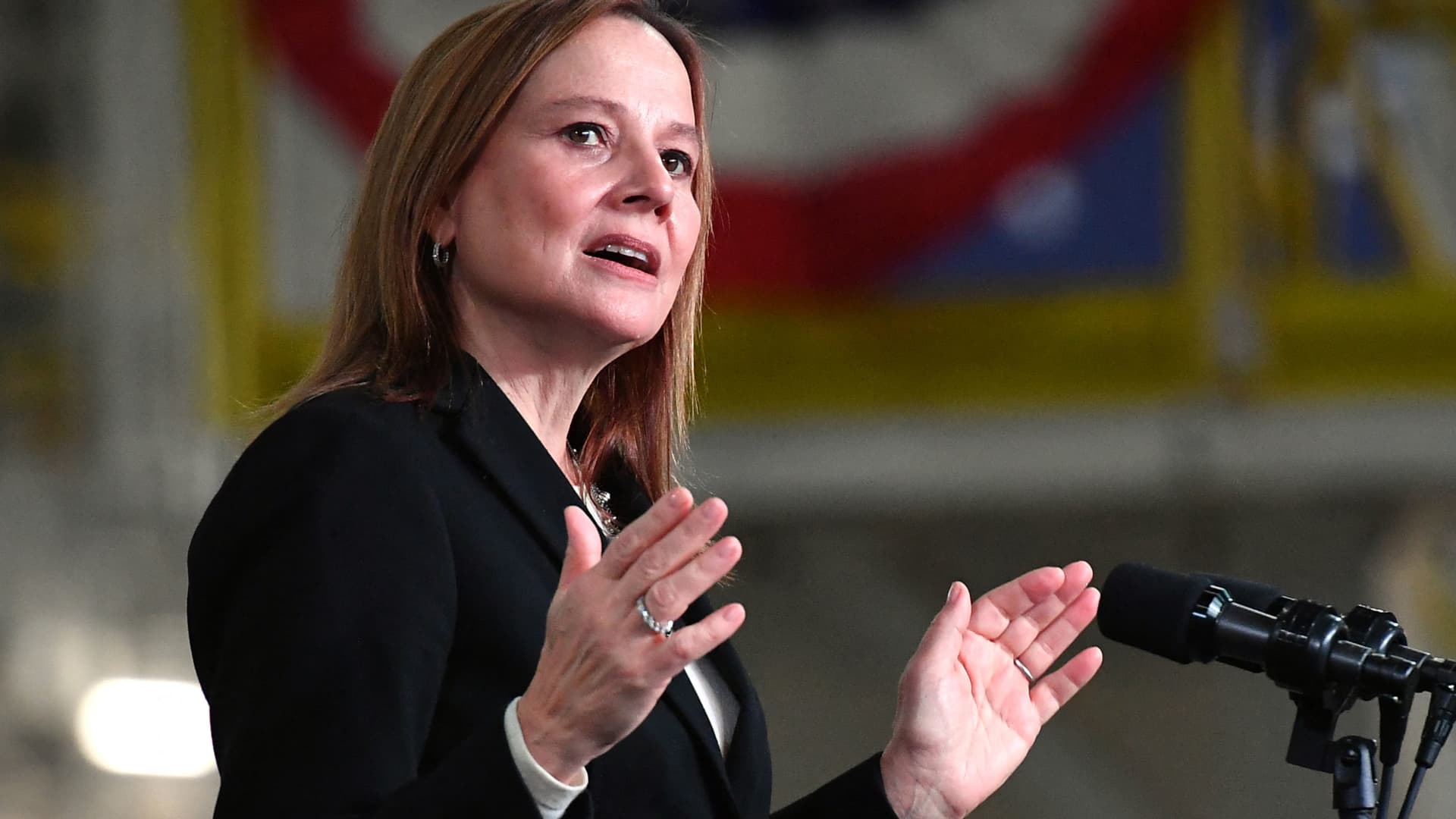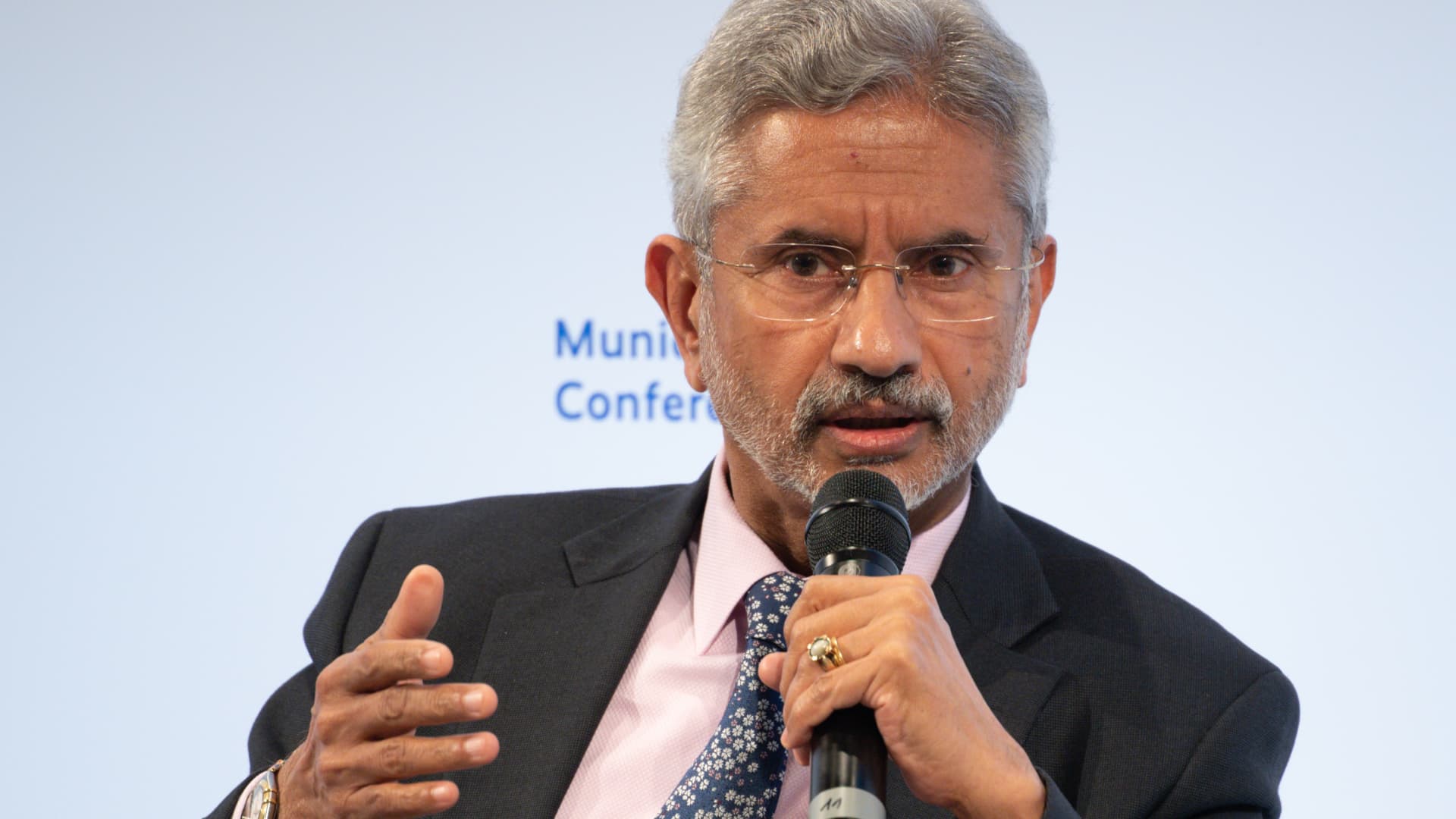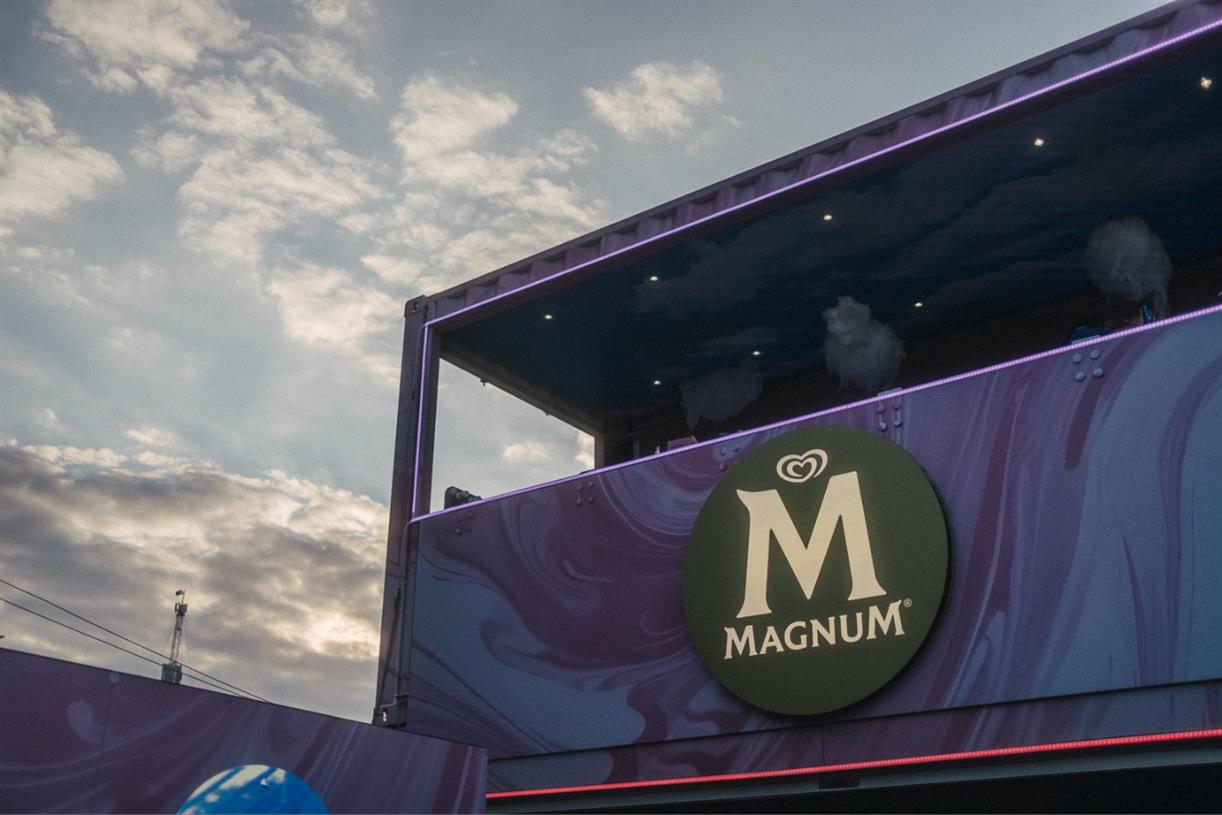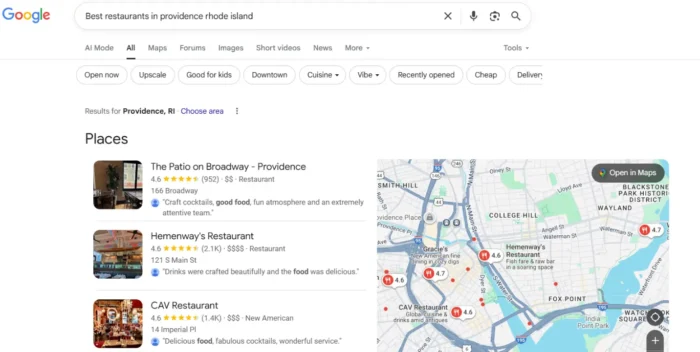Supreme Court strikes down New York gun law restricting concealed carry in major Second Amendment case
The Supreme Court ruling is a victory for Second Amendment advocates, who opposed the New York law restricting concealed carry gun licenses.
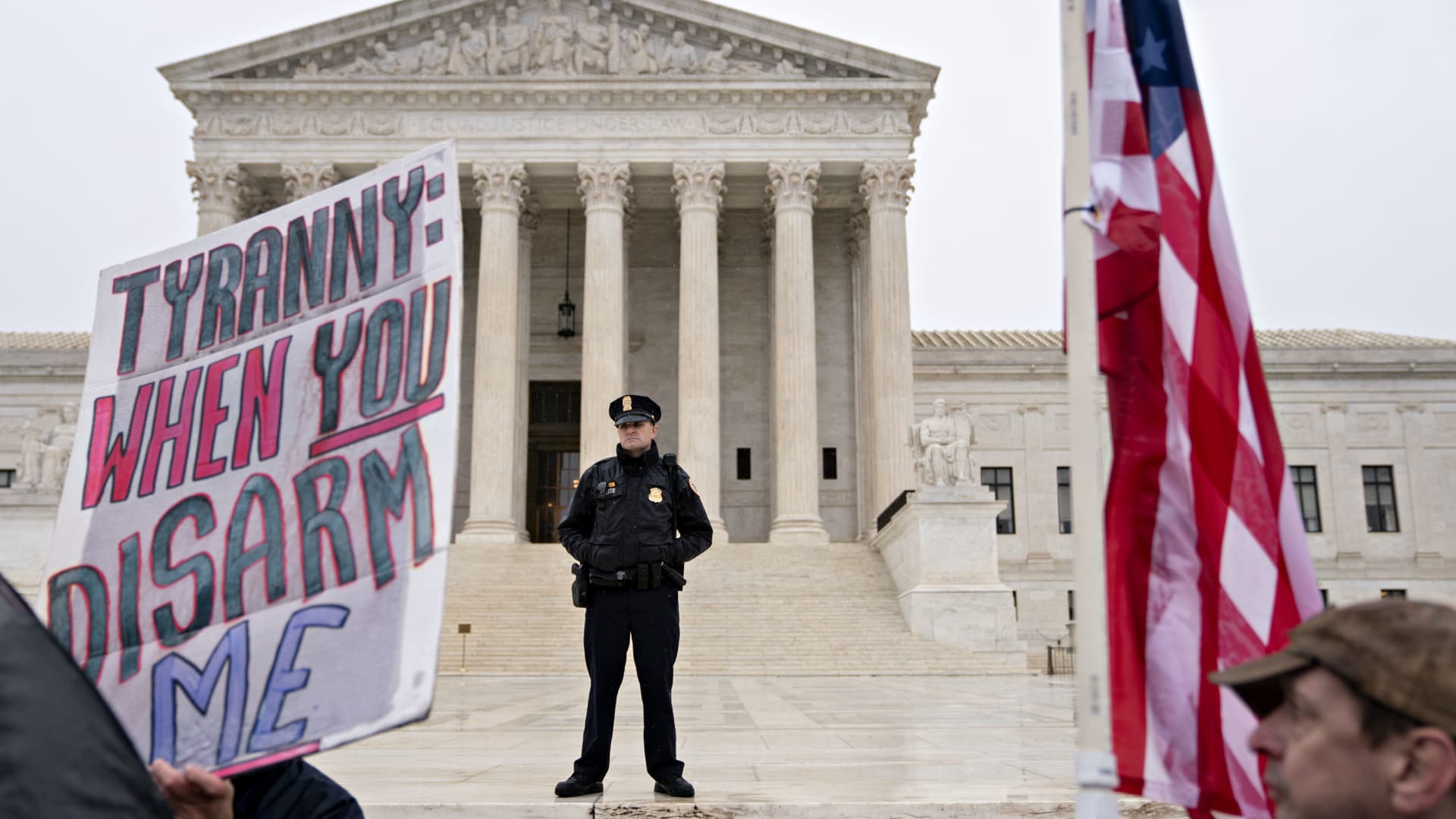
A U.S. Supreme Court police officer stands past gun-rights demonstrators outside the Supreme Court in Washington, D.C., U.S., on Monday, Dec. 2, 2019.
Andrew Harrer | Bloomberg | Getty Images
The Supreme Court on Thursday struck down a New York state law that requires applicants for a license to carry a concealed gun to have a "proper cause" to do so, saying it violated the Second Amendment of the U.S. Constitution.
The ruling is a major victory for gun rights advocates who had challenged New York's restrictive law, which makes it a crime to carry a concealed firearm without a license.
The Supreme Court's six conservative justices voted to invalidate the law, which has been in existence for more than a century, with Justice Clarence Thomas writing the majority opinion in the case.
The court's three liberals voted to uphold the law, with Justice Stephen Breyer writing a dissent on the decision.
The majority said that New York's law violated the Constitution's Fourteenth Amendment, which says citizens have a right to equal protection under the laws, by "preventing law-abiding citizens with ordinary self-defense needs from exercising their Second Amendment right to keep and bear arms in public for self-defense."
The case had been brought by the New York State Rifle & Pistol Association and two of its members, Robert Nash and Brandon Koch, whose applications for concealed-carry handgun licenses for self-defense purposes were rejected.
New York Supreme Court Justice Richard McNally, who handled both requests, ruled that neither man had shown proper cause to carry guns in public because they failed to demonstrate that they had a special need for self-protection.
The plaintiffs then challenged that denial in a federal court in New York, arguing that the state law governing concealed-carry licenses, which permits them only when "proper cause exists for the issuance thereof," violates the U.S. Constitution's Second Amendment. The law also required applicants to have "good moral character."
After a federal judge in New York dismissed the case, the U.S. 2nd Circuit Court of Appeals affirmed that judgment. The U.S. Supreme Court then took the case.
This is breaking news. Please check back for updates.

 KickT
KickT 







